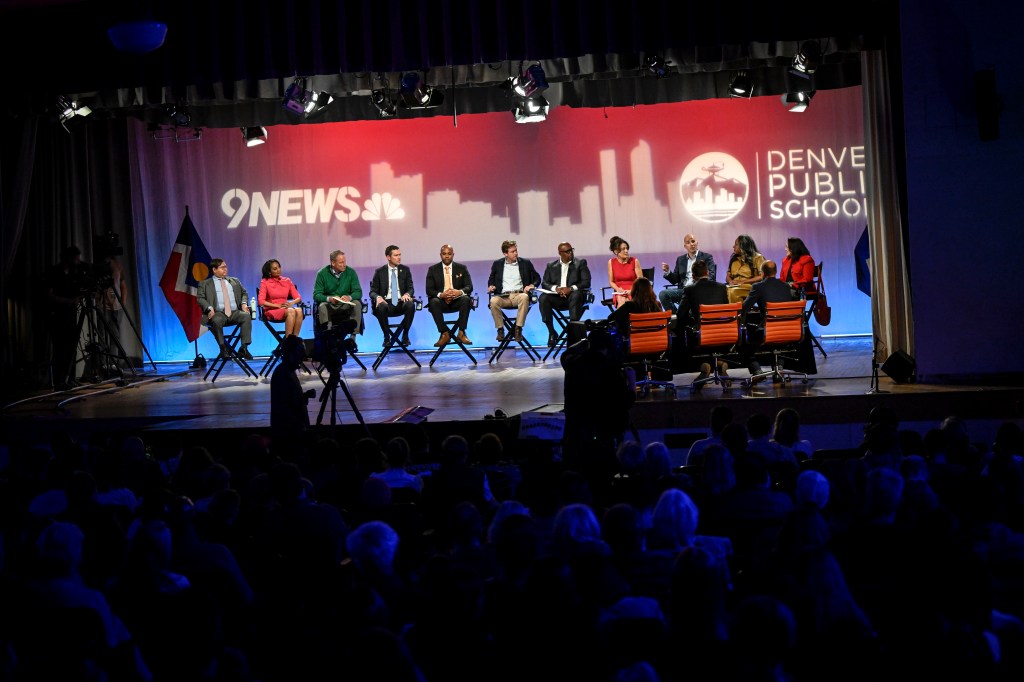Imagine someone being sworn in as the mayor of Denver after being declared the winner with only 20% of the vote – only one out of every five voters.
Unlikely? Not so fast. If the election method called ranked-choice voting now being peddled on an undiscerning electorate were to become law, voters would have to say a permanent goodbye to the City Charter’s guarantee that the mayor of Denver must win by a majority of the ballots.
True. When the city council three years ago rejected a ranked-choice voting proposal to replace our runoff elections, the draft bill included a section repealing the longstanding requirement that the mayor, district council members, city auditor and the clerk and recorder must be elected by a majority.
That’s because ranked-choice voting rarely produces a majority winner.
How so? Isn’t ranked choice a sort of “instant runoff,” letting us replace our 72-year tradition of guaranteeing a majority result through a runoff election?
No, it is a confusing and opaque way of reverting to the old plurality voting system, where whoever gets more votes wins regardless of percentage.
Ranked choice voting relies on setting aside some ballots as second, third or more rounds of tabulation occur, and those voters fail to choose any of the remaining candidates. The ranked-choice system calls them “exhausted ballots,” as though the voter just got tired and left. Eliminating their ballots from the denominator when calculating the 50% threshold allows ranked choice promoters to falsely claim it arrives at a majority winner. The “exhausted” voters might as well have stayed home.
This happens more often than you think.
In my analysis of 51 elections across the country decided by the ranked-choice method, only eight “winners” had a true majority of the votes that were cast. But of those eight mayoral elections decided by ranked choice in Minneapolis, San Francisco, Oakland, Portland and New York, not a single one resulted in a true majority winner. Even incumbents failed to get a true majority.
The worst-ranked choice outcome was in San Francisco, where a candidate for a seat on the Board of Supervisors – their version of city council – was declared the winner with 52% of the vote. But that was after a full 60% of the ballots were “exhausted” after 20 rounds of counting voters’ rankings. In reality, she got only 21% of the vote.
It’s easy to claim you got a majority when ranked choice allows you to ignore three out of every five people who went to the polls and voted. Why would Denver want this?
It shouldn’t. Denver used a ranked-choice voting system from 1916 through 1952, and then under reform Mayor Quigg Newton, voters replaced it with the runoff system, guaranteeing a majority winner every time. Even better, it provides for a more robust, focused campaign between two finalists, giving voters a second ballot and more clarity on their choices.
Imagine if ranked-choice had been used in last year’s mayoral election, with 17 candidates trying to get your attention. How on earth could most voters get enough information on all of them to rank 17 people in order of preference? Worse, ranked choice rules usually limit voters to ranking only three to six candidates, guaranteeing many ballots will be discarded from the count.
The majority of Denver runoff elections since 1983 have had higher voter turnouts than the first election. Ranked choice can’t do that. This is not democracy. Don’t let ranked-choice voting throw out your ballot.
Kevin Flynn is a Denver City Councilman representing District 2.
Sign up for Sound Off to get a weekly roundup of our columns, editorials and more.
To send a letter to the editor about this article, submit online or check out our guidelines for how to submit by email or mail.
